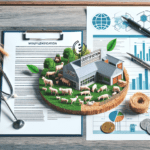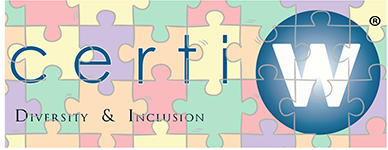

# Animal Welfare Certification: A Step Forward for the Agri-food Sector
Animal welfare is an increasingly central theme in the agri-food sector, and the stakeholders involved are taking concrete steps to ensure high standards. In this regard, an important decree has recently been published, defining the technical requirements for the voluntary certification of farms according to the National Quality System for Animal Welfare (SQNBA). This initiative not only promotes animal welfare but also aligns with European policies on sustainability and food quality.
## What Does SQNBA Certification Mean?
The SQNBA certification is an accreditation system that verifies the compliance of farms with established requirements, specifically for different animal species and production methods. Accredited farms must adhere to identification and traceability standards, a process that enhances consumer trust in the food they consume.
This certification aims to promote not only animal welfare but also the economic sustainability of farms. It is a fundamental tool for ensuring transparency throughout the agri-food supply chain, from producer to final consumer.
## The Main Regulations and Macro Areas of SQNBA
With the published decree, the first five regulations covering specific categories of farms have been approved. These regulations are designed to ensure high welfare standards, well beyond current regulations.
1. **Outdoor Raised Pigs (over 50 kg)**: This regulation focuses on farming methods that allow animals to live outdoors, enhancing their physical and psychological well-being.
2. **Dairy Cattle in Stalls**: This standard establishes criteria to ensure that dairy cattle, even when raised in stalls, can enjoy optimal living conditions that meet their natural needs.
3. **Beef Cattle in Stall Farming**: Farms dedicated to beef must follow practices that ensure good welfare even in more confined settings.
4. **Family-run Beef Farms**: This regulation aims to enhance small-scale farming practices, where more attentive and conscious animal husbandry is possible.
5. **Beef Cattle Raised Partially or Fully on Pasture**: Pastoral farming remains one of the most respectful methods towards animal welfare and is therefore subject to specific regulations.
The macro areas under which these regulations fall are four: **welfare**, **biosecurity**, **responsible use of medication**, and **environmental protection**. Each of these areas addresses fundamental issues, including aspects such as combating antibiotic resistance, a growing concern in the livestock sector.
## Sustainability and Consumer Information
One of the fundamental objectives of SQNBA is to provide consumers with clear and transparent information about the products they purchase. The regulations encompass not only the improvement of animals’ living conditions but also practices that reduce the environmental impact of food production.
The growing awareness among consumers seeking more sustainable products has made this information a key element in purchasing decisions. The ability to identify SQNBA-certified products allows consumers to make more informed and conscious choices, promoting greater responsibility from both producers and buyers.
## The CAP 2023-2027 and Incentives
The compatible alignment with the Common Agricultural Policy (CAP) 2023-2027 is another crucial aspect of the SQNBA initiative. The CAP aims to promote sustainable agricultural practices, financially supporting farms that engage in more environmentally friendly and animal welfare-respecting methodologies. The incentives provided further encourage farmers to implement innovative techniques and improve their practices.


